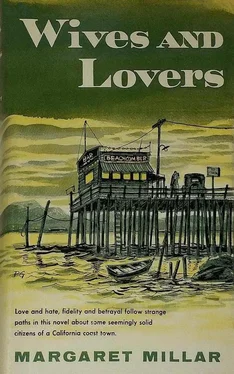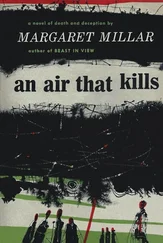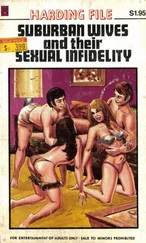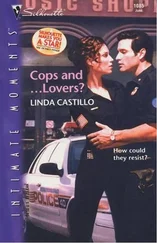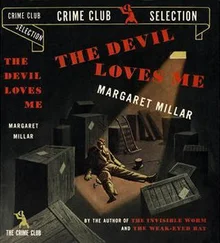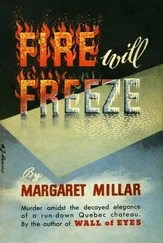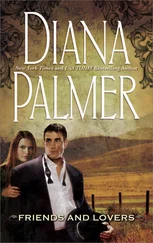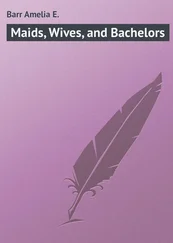“Now try and be sensible, Ruth. I looked in the garage a few minutes ago and couldn’t find it. You’re sure you hid it there?”
“Yes.”
“What part? Tell me.”
“I want to, I want to, but I—” She moved her head from side to side, like an animal with a pain it couldn’t understand or communicate.
“Ruth. Listen to me.”
“Yes.”
“You’re over the bad part, you’ve admitted you took it and hid it some place. That was hard for you, but you did it.”
“Yes.”
“The rest can’t be any harder. Tell me where it is and I’ll take it back to him and we can forget the whole thing. Are you listening to me, Ruth?”
“Yes.”
“Where is it?”
“The — the buggy.”
“Buggy.”
“That Harold got for the baby. It’s right — right there. I didn’t hide it. I just put it down — it seemed — such a good place for it.”
“Yes,” Hazel said quietly, “I guess it was.”
“You won’t — tell Josephine?”
“No.”
“She’d be mad — germs and everything.”
“I won’t tell her.”
“I don’t know — why I took it. It’s only a clipper.”
“Sometimes things have a special meaning.”
“What meaning could it have? Only a clipper.” She raised her head, slowly. “To you it must seem — quite humorous.”
“No.”
“But it is, it is humorous, in a way. I often see the funny side of things only I can’t laugh easily like some people. Oh, yes, I see the humor in it. You must, too, only you won’t admit it — a grown woman spying on a Mexican gardener, yes spying, and then stealing his hedge clipper and hiding it in a baby buggy. That’s humorous enough. You’re a great laugher, why don’t you laugh?”
“I don’t feel like it,” Hazel said. “I’ll go and get the clipper.”
“Wait. I’ll go with you.”
“I wish you wouldn’t.”
“I must.” She grasped the bedpost and pulled herself to her feet. Two spots of color had appeared over her cheekbones like round red poker chips. “I must learn to face things.”
The garage smelled of oil and dust and dead leaves. Each time a gust of wind blew past the door the leaves were sucked up into the vacuum it left behind; they jerked and spun for a moment like frenzied dancers and then drifted down to the concrete floor, rustling with self-applause.
Throughout the morning dust had sifted into the garage like snow, and now it covered everything, the oil leavings from Hazel’s car, the broken chair from the kitchen, the bicycle Harold had used on his paper route years and years ago, Ruth’s trunkful of books, George’s collection of shells and driftwood; and, in the far corner near the window, the buggy which Harold had gotten, fourth- or fifth-hand, from the furniture store where he worked. Someone (Josephine? Ruth?) had covered the buggy with an old yellow slicker.
Ruth approached it slowly, holding a handkerchief against her mouth, partly to control its trembling and partly to protect it from the dust.
Her voice came through the handkerchief, muffled and strange. “Everything is so dirty. I must clean.” I must face things, I must expiate, I must clean, I must, I must... She removed the yellow slicker and a faint odor of urine rose from the mattress pad and vanished.
The hedge clipper lay snugly on its side, but it did not breathe or move; it did not look or smell or feel like a real baby, and yet for a brief time in Ruth’s mind it had been real. It had breathed against her scrawny chest and warmed her arms and made loving sounds in her ear.
She reached into the buggy and pulled the clipper out roughly by one handle.
“Only a clipper,” she said with a sharp little laugh. “You see? It is funny.”
“Yes.”
“I wish you’d laugh. You laugh at other things, why not at this?”
Hazel didn’t answer.
“I suppose you think I’m crazy. Well, I’m not. I sometimes wish I were. Life can be so dirty, so cruel, so terrifying.” Life is dirty, I must clean; it is cruel, I must be kind; it is terrifying, I must be brave, face things.
“Where does he live?”
“Who?”
“Mr. Escobar.” It was the first time she had ever called him by his name.
“On Quincy Street, 509, I think.”
“You said the hard part was over, Hazel. You were wrong.”
“I don’t know what you mean.”
“I’m going to take the clipper back myself. That will be the hardest part, explaining to him.”
“For God’s sake, Ruth, be sensible. You can’t explain to him, you—”
“I must.”
She turned and walked back through the dead leaves and the dust, with the hedge clipper hanging loosely from her hand, striking her thigh as she moved.
She took a bus across town in the direction of Quincy Street. Since it was Sunday, the bus was nearly empty and the driver had to go very slowly to kill time. On weekdays, in order to keep to his schedule, he was compelled to drive at a wild clip, dodging in and out of traffic, blowing his horn, spurting through the streets like a grounded pilot demoted to the wheel of a dilapidated bus but not admitting it for a minute.
Sunday was different, low gear, five miles an hour. He had time to look around and enjoy himself and study his passengers through the rear-view mirror. The young Negro couple were in love, probably newly in love, from the way they sat and looked at each other in utter silence; the old man behind them was smiling drowsily to himself as if the bus was his own private Cadillac and he was taking a Sunday drive.
Only the gray-haired woman sitting taut and rigid near the rear exit door with a parcel across her knees seemed anxious for a destination. She kept peering out at the street signs.
“Driver?”
“Yes, ma’am.”
“You heard me say Quincy Street?”
“Yes.”
“You’ll be sure and—?”
“Yes, ma’am.”
He looked at her curiously. Her features reminded him of a teacher he’d had years ago in Jefferson grade school, a very gentle, pretty, young woman who had trouble keeping the class quiet. When she said goodbye on the last day of school she had cried a little and most of the children had cried too. Miss Kane. He hadn’t thought of her for years.
“Quincy Street,” he said, and the woman got up, clutching her parcel, and headed for the door.
He swung around in his seat and stared at her, his eyebrows raised, as if he expected an answer to some question.
Miss Kane?
She stared back at him for a moment, and then turned away. Sorry, Miss Kane doesn’t live here any more.
The door closed behind her and the bus moved away, its ageing insides grumbling and letting off wind.
She stood and watched, remembering the bus driver perfectly, his name, his age, his report card. Melvyn Schlagel, grade three. Dear Mrs. Schlagel, Melvyn is a bright and lovable boy, and I am sure his indifferent marks are merely the result of high spirits and will improve greatly in time to come. Sincerely, Ruth Kane.
Miss Kane?
Yes, Melvyn.
She raised her hand and waved, just as the bus reached the corner. She was not sure whether Melvyn waved back or whether he was making a left-turn signal. No, they never make signals, she thought, he must have waved back at me. He knew me after all these years. I can’t have changed so much. Perhaps next time, if I see him again, we will have a little chat about old times. What a noisy class I had that year, but I loved them all.
The bus turned the corner and Ruth began to walk in the opposite direction down Quincy Street, a new glow in her eyes and a bounce in her step, as if the unexpected reminder of happy years made them more real in the past and more possible in the future. The gap between the two seemed suddenly smaller, its walls lower, its moats easier to leap across, its doors already half-open.
Читать дальше
